The miracle of Oswaldo Balanta: football and life after cardiac arrest

When Oswaldo Balanta opened his eyes, he immediately realized he wasn't in his bed or in his room. He didn't know what had happened to him; he didn't feel pain, he didn't feel fear or anguish, he didn't feel anything. Beside him was his mother, Rosana , who ran toward him, excited by his awakening, and whispered in his ear to stay calm, that everything was fine, that nothing was going to go wrong. Oswaldo Balanta, somewhat confused, received his mother's hug and recognized that it was the same sweet voice that encouraged him and accompanied his deep sleep during those days when he was unconscious in a hospital, after suffering a cardiac arrest during training that had left him between life and death. He stayed alive. He lives. His heart beats.
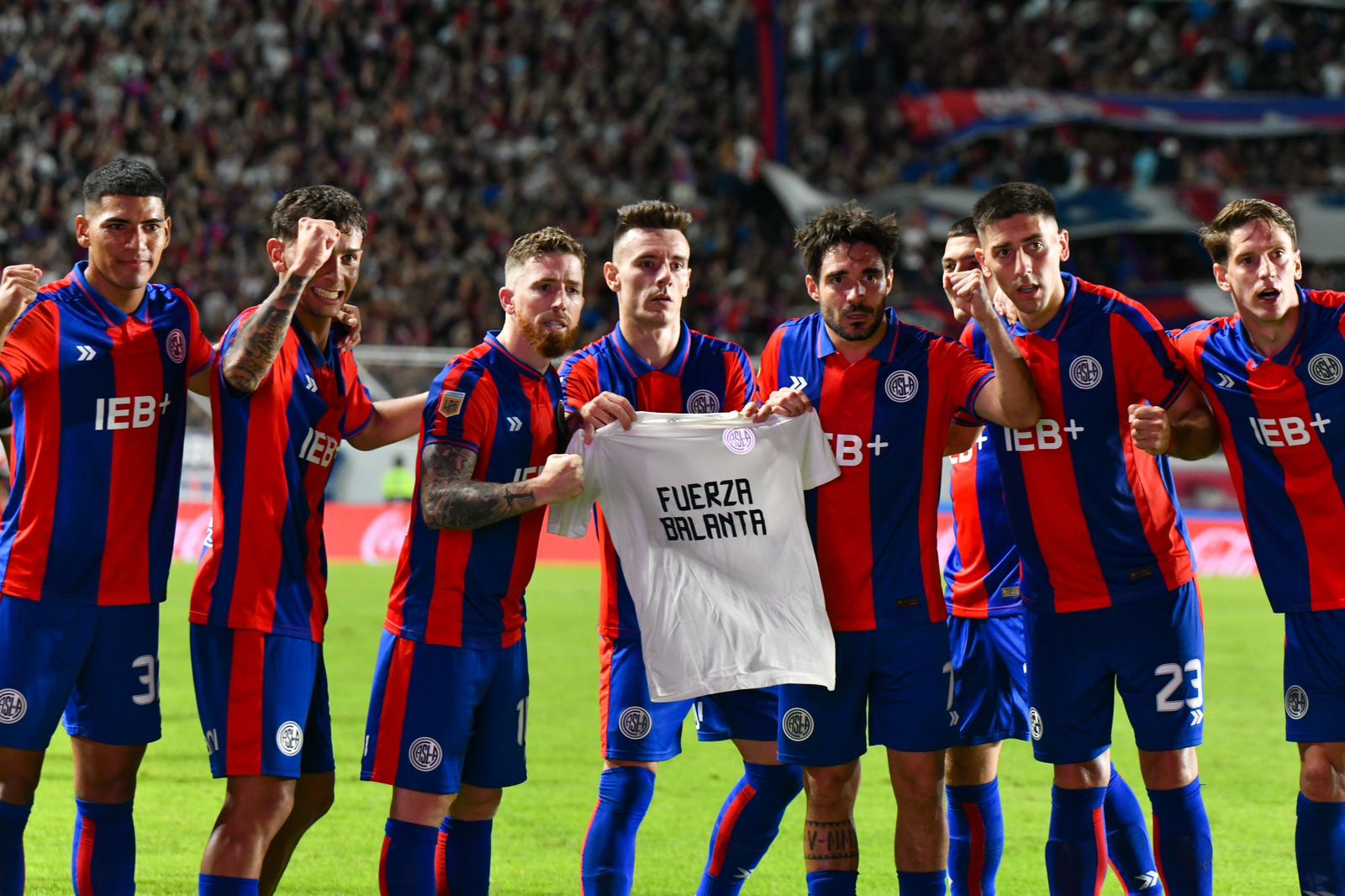
San Lorenzo Players Photo: Provided
No one is prepared for a cardiac arrest. No one knows what it's going to be like when the heart decides to suddenly stop. Oswaldo Balanta , a 23-year-old Colombian soccer player, didn't need to know either. It happened a month and a half ago, on March 26th, and he can't remember much. His memory has a gap in time; it depends on what he was told; that's how he reconstructs his story, because he doesn't know exactly what happened. What he can say is that it all started like a normal day. He got up early, had breakfast, went to train at the Sports City with the San Lorenzo de Almagro Reserve team in Argentina, where he had been on trial for two months. He did his gym work, went onto the field, touched the ball a couple of times, was getting ready to score a few goals. His heart was beating normally, not signaling anything unusual, when suddenly everything went black, absolute darkness enveloped him, and then, without pain, without fatigue, and without warning, he fell to the ground.
Oswaldo was treated on the field—that's what he was told. All his teammates, doctors, and even security guards rushed to his aid. They performed timely resuscitation and defibrillation maneuvers—that's what he was also told. He was rushed to a medical center by ambulance. Specialists, including cardiologists, attended to his case. "He suffered a cardiac arrest..." said the club's initial medical report. Balanta was unconscious for four days—that's what they also told him because he doesn't know how much time passed and still doubts it was four—and was in intensive care, stable, and on ventilator support. In Santander de Quilichao, his hometown and where his family lives, there was an alarm. His mother, Rosana , received the message and took the first plane to Buenos Aires. She needed to be near her son.
When Oswaldo opened his eyes and spoke with his mother, the doctors who arrived in the room, and his agent, Carlos Scoles , he began to understand what had happened. “Cardiac arrest,” they told him. “We need to run more tests.” For four days, he underwent every possible test to determine what had happened to his heart, why it had failed—for him, who had never had any history of heart failure, any cardiac alarms; for him, a high-performance athlete; for him, why for him? And so he remained under constant monitoring. Oswaldo remembers that he didn't get upset, that he remained calm, as if it were one of his virtues as a striker before scoring a goal, the same calm he has now as he tells his story, with the voice of a 23-year-old who has just experienced a miracle and yet shows no anguish. The voice of someone grateful for the miracle of being alive.
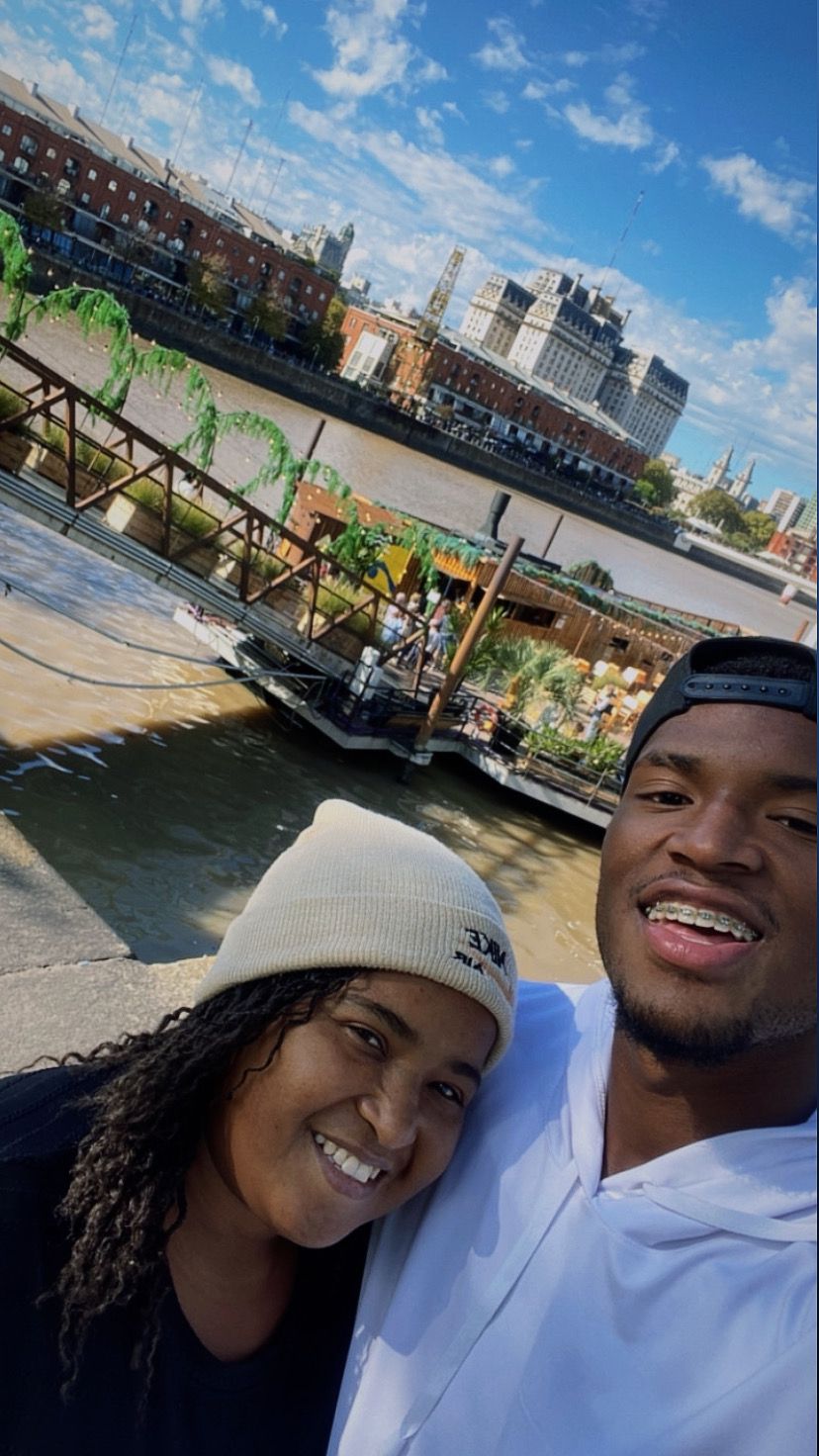
Oswaldo Balanta with his mother Photo: Provided
—What was the first thing you felt when you woke up?
—Nothing. No fear, no dread, no pain. I woke up feeling normal. I didn't remember anything. I just felt joy; I was happy and grateful to God, the doctors, and the club.
The second life of Oswaldo Balanta Oswaldo Balanta is a soccer player, a striker, a powerful striker, that's how he describes himself. He left for Real Santander in his hometown, played for Deportes Quindío 's U-20 team, and in the youth teams of Boca Juniors de Cali. There, he made his professional debut in the Colombian Second Division , playing 25 matches and scoring three goals in the B division. This year, he embraced a dream and went to try his luck in Argentine soccer. He wanted to wait for the next transfer window, and in the meantime, he asked to coach at San Lorenzo's Reserve team. That's when his heart failed him without warning.
Balanta describes himself as a happy boy, in good spirits, with a good attitude, full of dreams. He says he wants to continue in football, whether playing and scoring goals, or even as a fitness trainer. He wants to start studying for that as soon as possible, but since what happened to him, he says, he feels different, happier, calmer. He's a different person, more grateful, he assures.
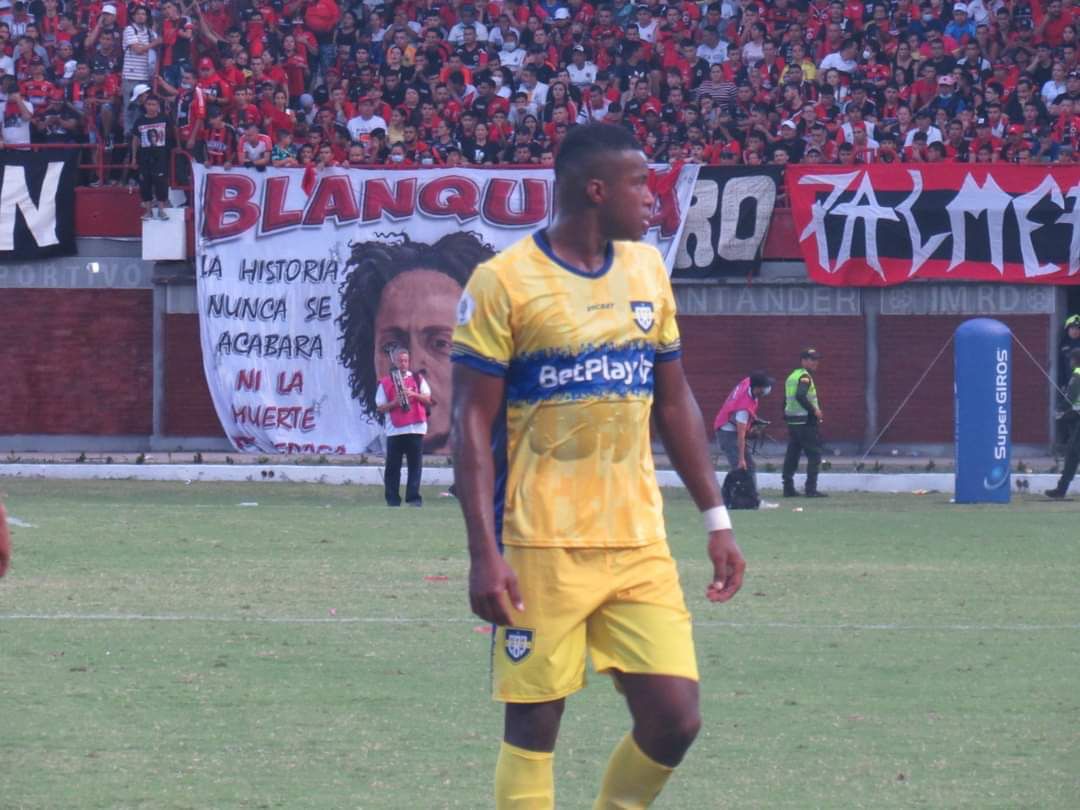
Oswaldo Balanta Photo: Provided
—And why your happiness?
—Because it is an immense joy to be here, alive.
Balanta and the future Days have changed for Oswaldo Balanta. After being discharged from the hospital, he returned to Colombia to be with his family in Santander de Quilichao. There, he's continuing his rest process. He says he hasn't been asked for any further checkups and that he hasn't felt anything unusual, and that his heart is normal. He doesn't know what lies ahead. Doctors told him he'll be able to gradually return to training in three to four months. For now, the instructions are clear: rest. That's why he spends his days away from the ball, not working hard, although playing soccer is what he knows how to do.
—Yes, football is my life, but now I see everything differently. God gave me a second chance, and there are other important things, like enjoying time with my family. My daily life revolves around many other things besides football. God will decide if I return little by little, but now I enjoy my life much more...
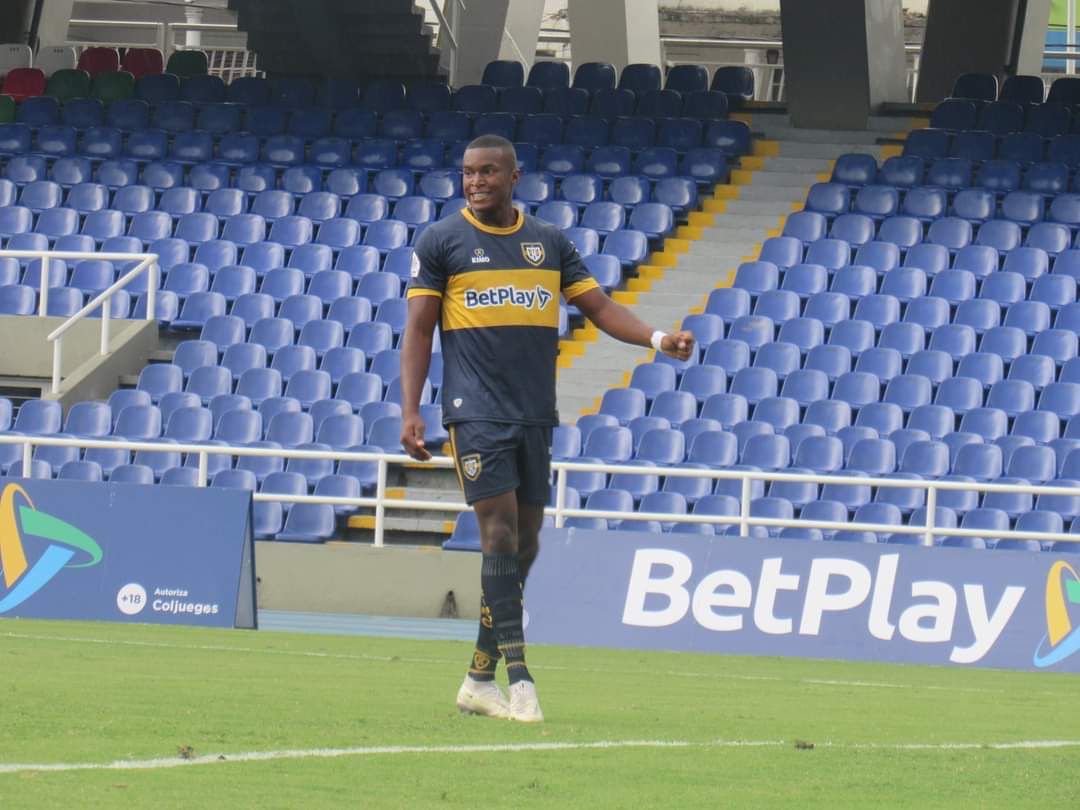
Oswaldo Balanta Photo: Provided
When Oswaldo lies in bed, closes his eyes, and prepares to dream, he can't help but have images of what happened to him come to mind. He tries to remember what he doesn't remember, tries to understand what he doesn't understand; then, he spends time praying and giving thanks for being alive. He sleeps, and sometimes dreams that he's returning to the fields. In the morning, he opens his eyes, and his first thought is thank you for being alive, for getting up and seeing his mom, his dad, his aunt—who is like another mother—and his siblings. All of this is what makes him happy.
As for his future, he wants to return to San Lorenzo. He's very grateful for everything the club has done for him, including the medical care and concern. Oswaldo remembers the San Lorenzo players celebrating a goal with a shirt that said "Fuerza Balanta," and that moves him; that, he believes, truly gave him the strength to get out of that bed, leave the hospital, and return to Colombia to continue his life with his family. The club told him not to worry, that the only thing that mattered right now was his health.
—Why do you think all this happened to you and what is left for your life?
—Because God had a plan for me. He led me to the right place because He knew He could save me there. Elsewhere, I might not have been able to receive that care, nor the people, nor the doctors, who acted swiftly. They had the tools there. This could have happened to me at home, in the shower, but it happened at the perfect time and in the perfect place...
This could have happened to me at home, in the shower, but it happened at the perfect time and place...
Balanta doesn't know what will happen next. He doesn't wonder if it will take him longer to play again than predicted; he doesn't torment himself with thoughts of it. A true believer, he says he just hopes that whatever God wants will happen and that He will open the way for him.
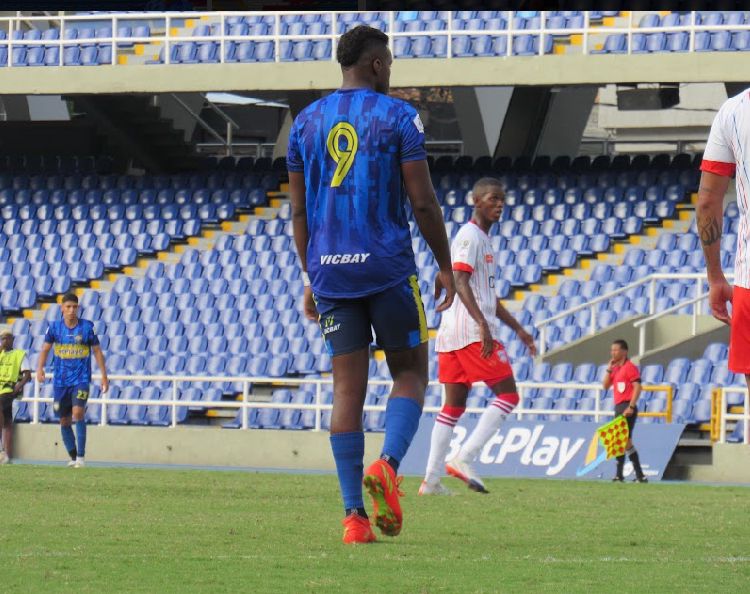
Oswaldo Balanta Photo: Provided
—Do you think this is like a second life?
—Yes, it's a second life. I'm more grateful. I feel peace, joy. Since I left the hospital, I haven't been the same; now I value life more because I think it's just a moment; we don't know when it's gone. Sometimes we live life just for the sake of it, and with these kinds of episodes, we appreciate more what it means to wake up, to open our eyes, to be whole, to be able to walk. Before, I wasn't as grateful for waking up as I am now.
Yes, Balanta now places his hand on his heart as he tells his story. He says he feels it strong, beating with its normal heartbeat, that vital thump-thump that he knows well, like a heart that has just awakened and is ready for anything.
"If God has brought me back to life, there's a reason for it," says Balanta happily, with the feeling that he still has a lot to do in this life...
More sports newseltiempo





